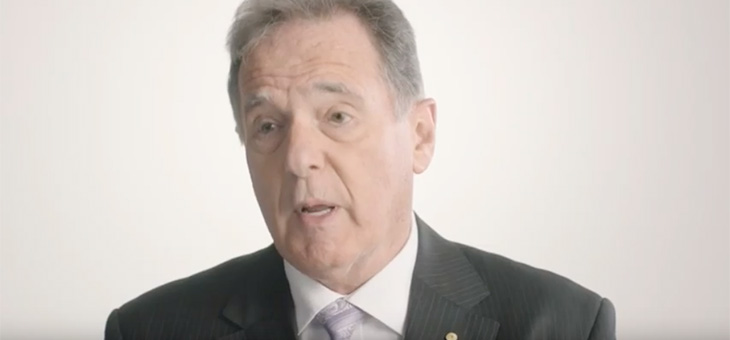Australians have been paying too much for prescriptions and pharmacy products for too long, says Graeme Samuel, the former head of the Australian Competition and Consumer Commission (ACCC).
He is accusing the Pharmacy Guild of “political blackmail”, saying successive governments have failed to stand up to its tactics and that consumers are paying the price.
Professor Samuel, now an academic at Monash University, wants Health Minister Greg Hunt to loosen the rules that protect small local pharmacies.
The Government is consulting on a new Community Pharmacy Agreement to govern the sector from mid-2020, with Mr Hunt saying it is “deeply committed” to providing affordable access to Pharmaceutical Benefits Scheme (PBS) medicines.
Prof. Samuel says Australians are paying too much for their PBS scripts due to the “anti-competitive regulations” in the sector, maintained over decades of “unashamed” lobbying of all levels of government by the Pharmacy Guild.
“Pharmacists have been protected for so long, they’re the most powerful union in Australia,” he told The Age.
Current rules restrict new pharmacies from opening near existing ones, and dictate who can own a pharmacy and how many. Prof. Samuels believes this hinders competition and prevents heavy discounting of PBS medicines for pensioners.
Australia’s largest pharmacy retailer, Chemist Warehouse, is among those pushing for more competition in the sector. Convenience stores, including 7-Eleven and Caltex, also want to sell prescription medicines, claiming this type of service is near the top of their customers’ wish lists.
Jeff Rogut, chief executive of the Australasian Association of Convenience Stores, said: “When we do surveys of our customers, pharmacy ranks up there with things like postal services as one of the top items they would like to see in a convenience store.
“The reason why is because of the extended hours, the ability to park easily, get in and out quickly and do all the things they want to do … it would save them time and be more convenient,” he told The Age.
However, the Pharmacy Guild, which represents 5700 small community pharmacists, is fiercely opposed to the sought-after changes.
A spokesperson for the group said it disagreed with Prof. Samuel’s views and that “far from being a competition-free zone, local pharmacies compete heavily on those medicines and other products where the price is not fixed by the Government under the Pharmaceutical Benefits Scheme”.
Prof. Samuel is firm that PBS drugs should be issued only by qualified pharmacists, but said discount chemists were suitably staffed. He added that products could be up to 50 per cent cheaper at warehouses than at traditional pharmacies.
“No PBS drug should be able to be issued to a consumer without a fully qualified pharmacist,” he said. “Once you’ve got that rule in place, nothing else is needed to protect the consumer. I’ve never had a question not answered and they (discount chemists) always give advice.”
The Pharmacy Guild says Australia has “a very good subsidised medicine system in the Pharmaceutical Benefits Scheme, meaning that most life-saving medicines cost the same or close to the same price wherever patients obtain them from a local pharmacy”.
“The prices of non-subsidised medicines may vary across regions depending on market forces and other cost factors,” a spokesperson said.
“If patients are concerned about the cost of medicines they should talk to their pharmacist, including about the availability of cheaper generic medicines.”
Are you concerned that you may be paying too much for prescription drugs at your pharmacy? Would you support deregulation?
If you enjoy our content, don’t keep it to yourself. Share our free eNews with your friends and encourage them to sign up.
Related articles:
One in four retirees losing money
Passport to better health
Lifeline for older Australians

